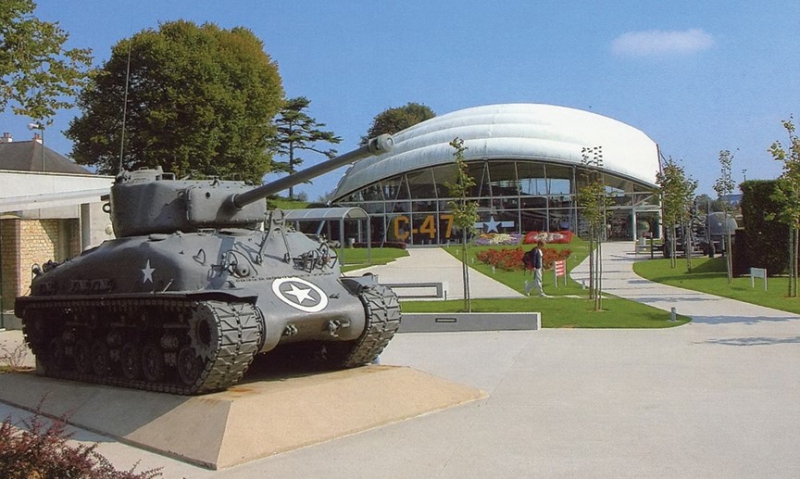
Airborne Museum to dedicate Ronald Reagan conference center
“The men of Normandy had faith that what they were doing was right, faith that they fought for all humanity, faith that a just God would grant them mercy on this beachhead or on the next.”
President Ronald Reagan, June 6, 1984.
Ronald Reagan did not fight in the Normandy campaign of World War II. Nearsightedness restricted his wartime Army service to stateside duties, including production of training films.
Those who did fight on D-Day in 1944 and in the months that followed, however, inspired Reagan for the rest of his life. Their sacrifices would help guide his presidency through the end of the Cold War and the fall of the Berlin Wall.
That’s why the Ronald Reagan Franco American Conference Center, located in the Airborne Museum in Ste. Mère-Église, Normandy, France, will be dedicated this month. It will celebrate, study and encourage understanding of freedom, the goal of the United States and its allies when they stormed into Europe to end Axis tyranny more than 70 years ago.
“Freedom was so very close to my father’s heart, and to be able to educate others at this conference center about freedom, the importance of what happened at Normandy and what it all meant to my father ... is enormous,” says Michael Reagan, son of the 40th president, and president of the Reagan Legacy Foundation. The center at the Airborne Museum in the first French town liberated in 1944 will be used for special events, lectures and programs that focus on freedom.
The foundation has also established a walkway of inscribed bricks honoring World War II veterans of the Europe campaign. Information about the bricks, which can be purchased by individuals wishing to honor a veteran, can be found at www.honoravet.reaganlegacyfoundation.org. The project funds scholarships for crew and families deployed on USS Ronald Reagan.
“There is not anybody alive today who came in on D-Day who does not remember the respect given to them by President Reagan visiting Normandy on their day, D-Day,” said Michael. “What we are doing is telling that story and why it meant so much to my father.”
